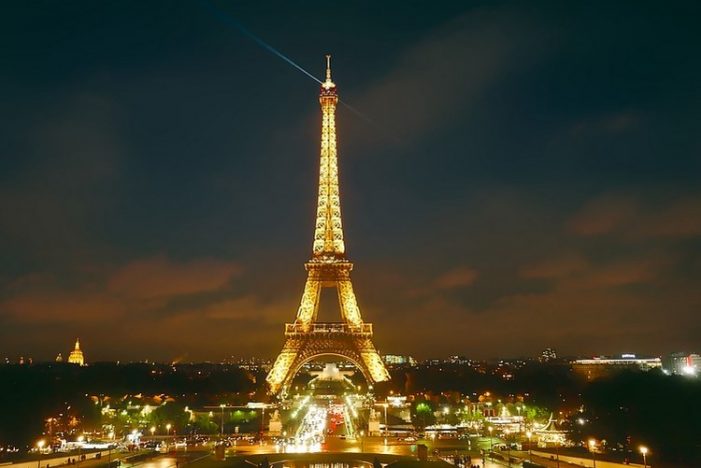Over the past few weeks, Paris has witnessed its worst riots in years. Protesters under the name, “yellow vests,” have left a wake of smashed storefronts, burned cars, and other vandalized property, which includes the Arc de Triomphe.
As authorities cracked down on the violence, the New York Times reported that approximately 1,400 people were arrested nationwide.
The yellow vest protests started in October when French President Emmanuel Macron proposed to raise fuel taxes in Jan 2019 to reduce pollution. The Washington Post reported that “Macron said the higher tax was his way of trying to prevent the end of the world.” But the yellow vest protesters turned that around with the slogan: “it’s hard to talk about the end of the world while we are talking about the end of the month.”
Gas taxes have been criticized for being regressive, meaning they affect lower-income earners more than higher earners.For France’s rural citizens who rely more on cars and already face financial strain, the gas tax with Mr. Macron’s decision to eliminate France’s wealth tax for all assets except real estate, cut housing aid, and oppose increases to the minimum wage has altogether fostered a following for the yellow vests. And their protests have enacted real change in France’s public policy.
On the morning of Tuesday, December 4, President Macron announced that the gas tax would be suspended. Now, having tasted the difference protests can bring, the yellow vests say their demands are not through.
It has been reported, that initially, the protesters were filled by members of the working poor from rural areas who were not happy with the planned increase in a fuel tax, which the government canceled this past week in a retreat.
However, now the protests have turned into a much broader anger at President Emmanuel Macron’s economic policies and France’s declining living standards.
Beyond France, the rest of the world is taken note of what happened when, taxes in the name of climate change, impact those who are struggling to make ends meet.
“The events of the last few days in Paris have made me regard the challenges as even greater than I thought earlier,” said Stanford University environmental economist Lawrence Goulder, author of the book “Confronting the Climate Challenge.”
NBC News recently reported that “the French “yellow vest” protests have ignited a debate on the left in the U.S. over how to avoid a similar backlash if Democrats get the chance to enact new environmental laws. And the demonstrations come as environmental issues are taking on more prominence amid dire reports from the United Nations and U.S. government warning lawmakers they have only limited time to minimize the damage.”
At the center of the debate is whether Democrats should pursue a carbon tax as part of their climate plan or whether they might risk enraging low- and middle-income voters, particularly those in rural and suburban America, by raising the cost of living.


¿Comment m’aimes-tu maintenant?”
-Marine Le Pen
Yeah, climate science is the globalist’s santa. All they want for Christmas is to tax the air.
It reminds me of a joke my cousin told me.
A “man of science” announces to God that he can do anything God can do.
So God responds. “OK. Let’s see if you can grow a flower.”
The man responds, “That’s easy. You just take some dirt, add a seed, a little water and sunlight and eureka you have a flower.
“Whoa not so fast”, says God. “You don’t get to start with dirt. You have to start from the beginning.”